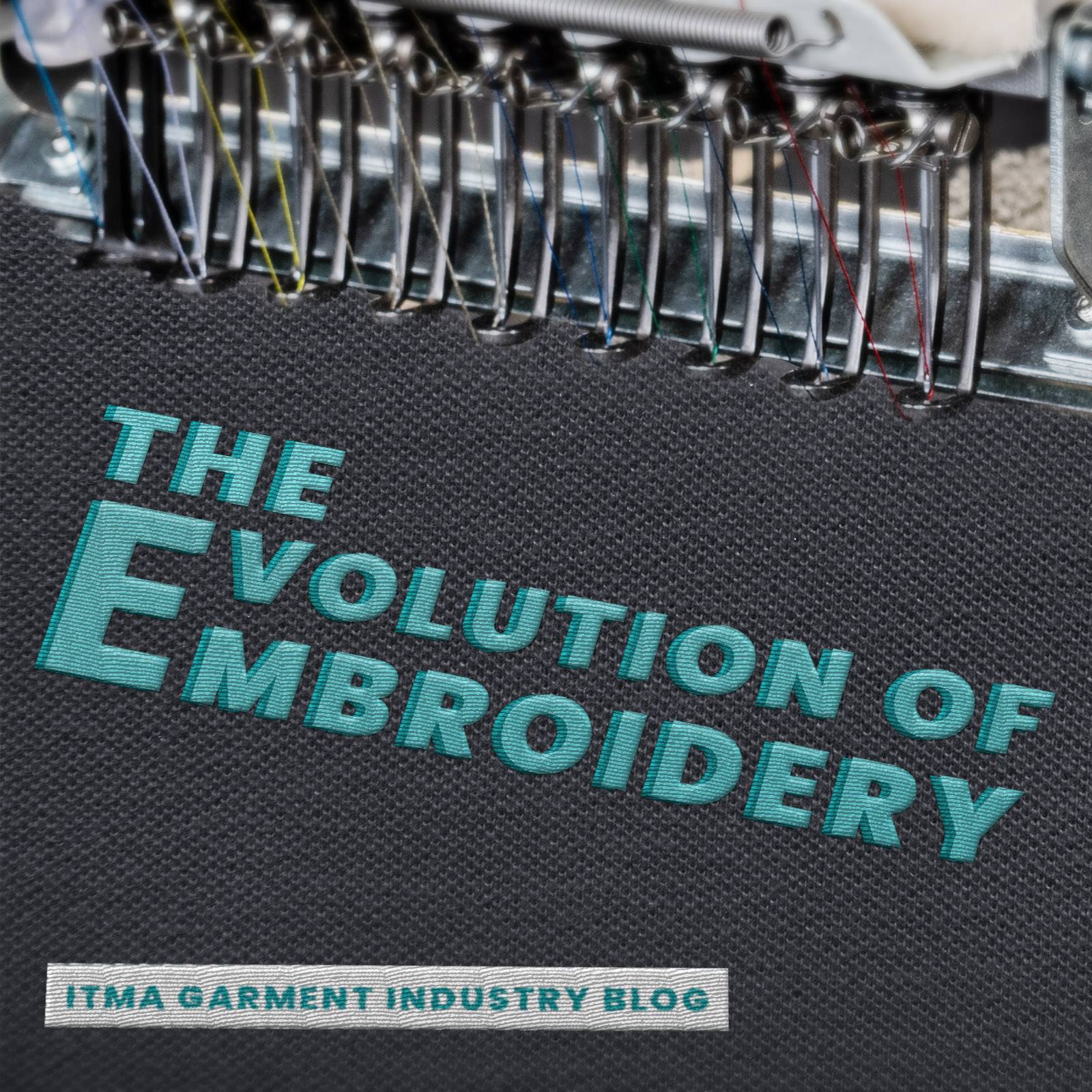The evolution of embroidery

16 22
September 2027
Messegelaende HannoverGermany

Both apparel brands and garment manufacturers have already become reliant on intelligent and versatile digitised technologies as the shift away from conventional, manually-intensive labour operations in the supply chain continues to gain new momentum. By Chris Remington.
On the cusp of the IoT age, digitised technologies are a tool, connecting stakeholders with manufacturers, and manufacturers with consumers. And what is integral in this relationship, is the need to respond rapidly to today’s fast fashion sector demands, which have been brought about by a generation of active and informed millennials who demand cheap, varied and sustainably sourced garment styles.
“With the proliferation of e-commerce and social media, our customers expect us to be fast, relevant and agile with the solutions we provide,” explains Jehan Mutaliph, chief digital officer at MAS Pixel, a new division of MAS Holdings, the Sri Lankan garment and lingerie producer, which manages a portfolio of businesses with a revenue of US$ 1.7 billion.

Digitised technologies are used by brands and manufacturers to pre-determine the size, fit and drape of apparel. By pre-determining how the garment will look, such technologies reduce waste and can create additional financial savings.
“It is extremely important to digitise the production process in order for us to offer new solutions to our customers. It’s not about augmenting our current operations using digital technologies, it’s about what other solutions we can offer our customers that will help to boost our value proposition.
“Whilst doing this, we also actively keep abreast of changing trends externally that affect our consumers. This gives us insight into trends that can be converted into value in our designing phase, thereby allowing us to provide our customers with the most relevant, trending designs,” Mutaliph notes.
“Given the fast-paced nature of the fashion industry, changes in consumer trends must be met with agility in the supply chain in order to produce for the customers’ requirements.”
Importantly for MAS, digitisation of garment production greatly eliminates waste, which benefits the company both financially and environmentally. “Financially, we are able to keep our headcount static, whilst providing our employees with digital tools that can help them perform more functions, thereby boosting the productivity of our workers. Environmentally, digitisation helps the reduction in paper use and wastage … this is especially relevant to material, electricity and logistical waste," says Mutaliph.
Leading by example
“Sportswear brands have been quick to adopt digitised technologies. From Adidas' agreement with SoftWear Automation, who will mass produce its t-shirts in the US, to Under Armour’s Innovation Lab, which uses advanced robotics to rapidly develop running shoes – the potential to revolutionise the manufacturing floor is now much more than a tangible proposition.

Sportswear brands such as Adidas have been quick to adopt digitised technologies in its supply chain.
“They are perfectly positioned to create hybrids (innovative apparel products) ... the fashion industry has too much to lose, they spend too much time building their brands so they are very scared of integrated technologies unless it’s around their e-commerce,” says Rana Nakhal Solset, founder of Emel + Aris, an interesting new UK luxury fashion brand which uses exquisite raw materials enhanced by cutting-edge technology.
“They want to see the trend grow, they want to see it tested in industry and then they’ll take the risk. Whereas sports brands, because they’re technical by nature and they want to improve performance, there has already been cases where technology in sports works,” says Rana.

Emel + Aris, with the launch of its smart jacket, has proven that integrated technologies can be discrete, sophisticated and functional. | Image Credit: Emel + Aris
This integration of new digital technologies is more than just a passing phase for the global garment manufacturing sector. This is because the integration of such complex technologies is rapidly changing industry and, crucially, yielding bottom line savings while connecting global apparel supply chains in a more sustainable way.
“Deployed in the cloud, these technologies provide a rich, multi-lingual interface for ease of use and are therefore extremely accessible to everyone,” comments Shivam Kharwal, marketing manager of ThreadSol – a software specialist based in Noida, India.
As a manufacturer in the field of digitised technologies, the company’s Intello series has found integral use in this highly-evolved, multi-faceted sector.
The assurance that digitisation brings can yield impressive savings for its customers, both financially and environmentally. These incremental resource savings, though impressive, are no more than commonplace in the sector today. The industry-wide onus now lies in the connectivity of these technologies. “Traditional apparel production solutions work for individual factories in isolation… but globalisation has changed the game,” Kharwal concludes.
At next year’s ITMA 2019 event in Barcelona, this increasing adoption of digitised technologies will become ever clearer, as leading machinery suppliers take to the stage to exhibit the latest in manufacturing technologies for the garment sector.
Subscribe to our mailing list and stay up-to-date with news and developments in ITMA and the textile and garment industry.